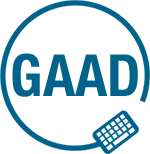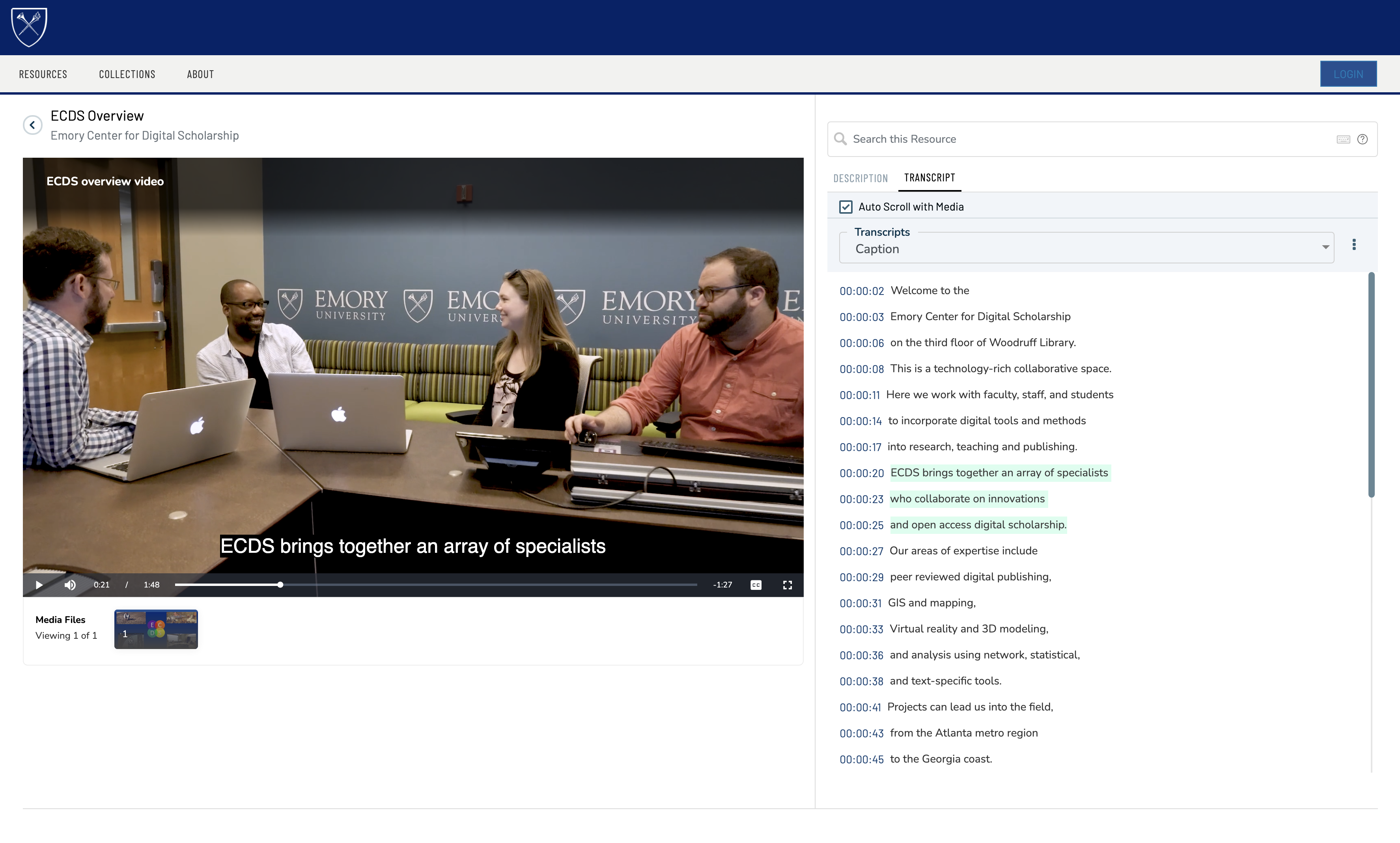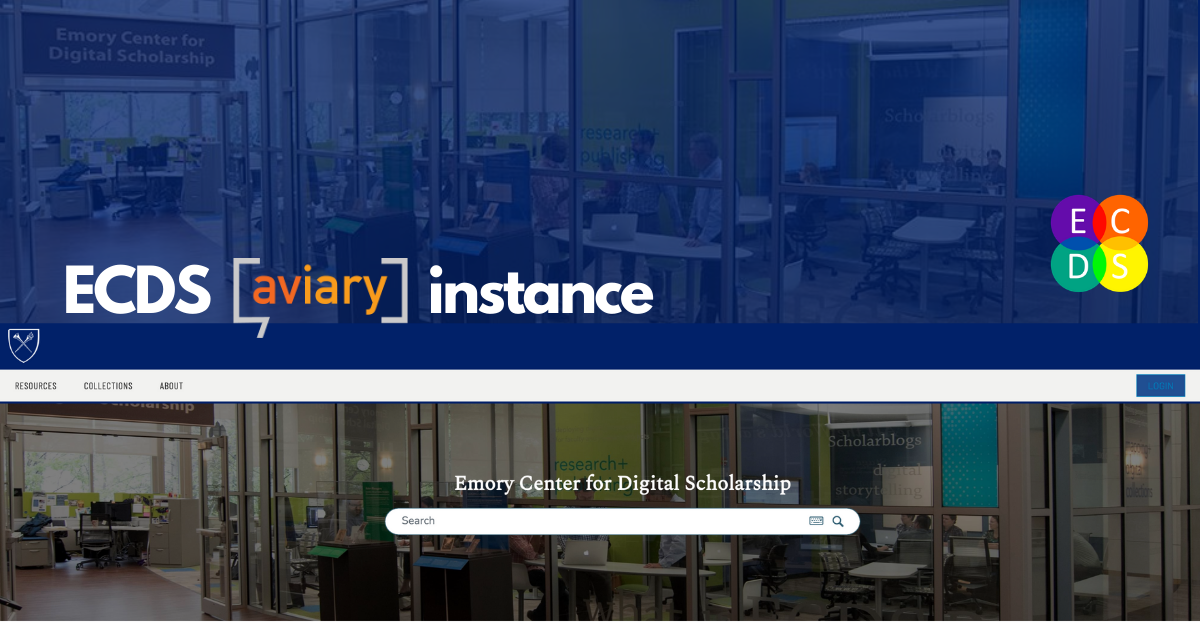 Today, May 20, 2021, is the tenth annual Global Accessibility Awareness Day (GAAD). As described on the official website, the purpose of GAAD is “to get everyone talking, thinking and learning about digital access and inclusion, and the more than One Billion people with disabilities/impairments.” Accordingly, today the Emory Center for Digital Scholarship (ECDS) is highlighting our center’s recent adoption of a new platform that demonstrates how digital accessibility efforts can improve not only the experience of users with disabilities but all users. In this blog post, you can learn more about the ECDS instance of Aviary, an audiovisual content publishing platform that leverages caption and transcript files to make video content fully searchable.
Today, May 20, 2021, is the tenth annual Global Accessibility Awareness Day (GAAD). As described on the official website, the purpose of GAAD is “to get everyone talking, thinking and learning about digital access and inclusion, and the more than One Billion people with disabilities/impairments.” Accordingly, today the Emory Center for Digital Scholarship (ECDS) is highlighting our center’s recent adoption of a new platform that demonstrates how digital accessibility efforts can improve not only the experience of users with disabilities but all users. In this blog post, you can learn more about the ECDS instance of Aviary, an audiovisual content publishing platform that leverages caption and transcript files to make video content fully searchable.
Over the past seven years, ECDS has produced hundreds of video and audio pieces for various digital scholarship projects, such as the Georgia Coast Atlas, and digital publications like the open-access, multimedia journal Southern Spaces. A particular focus of our accessibility work in recent years has been making our audio-visual content more accessible for users with disabilities by ensuring that they are appropriately captioned/transcribed. ECDS staff members, including our graduate student employees and interns, have explored a variety of different captioning tools and workflows, some of which our Senior Video Producer Steve Bransford and our Digital Project Specialist Adam P. Newman shared in a workshop this past semester.
 Beyond improving accessibility, captioning our videos has also opened other exciting new possibilities for making video content more useable and discoverable. Recently, we have established our own instance of Aviary, which allows users to search for specific terms and find the precise moments when the searched term in question is mentioned in a video. This Aviary instance has also enabled us to consolidate all of our media content (from a variety of YouTube and Vimeo accounts) into a single location and then sort that content into collections, which correspond to different projects and digital journals we publish. For example, the aforementioned Georgia Coast Atlas project collection includes flyover videos and interviews, and the Southern Spaces collection includes documentaries, music performances, and other videos from their multimedia publications. All of these videos include captions/transcripts that are fully searchable. Because users have the ability to search for terms in either individual videos, collections of videos, or our entire instance, they can discover things in unexpected places as well as thematic connections that span across multiple collections.
Beyond improving accessibility, captioning our videos has also opened other exciting new possibilities for making video content more useable and discoverable. Recently, we have established our own instance of Aviary, which allows users to search for specific terms and find the precise moments when the searched term in question is mentioned in a video. This Aviary instance has also enabled us to consolidate all of our media content (from a variety of YouTube and Vimeo accounts) into a single location and then sort that content into collections, which correspond to different projects and digital journals we publish. For example, the aforementioned Georgia Coast Atlas project collection includes flyover videos and interviews, and the Southern Spaces collection includes documentaries, music performances, and other videos from their multimedia publications. All of these videos include captions/transcripts that are fully searchable. Because users have the ability to search for terms in either individual videos, collections of videos, or our entire instance, they can discover things in unexpected places as well as thematic connections that span across multiple collections.
This brief demo video illustrates the search function in Aviary. You can click the “CC” button on the video player for captions.
ECDS has also worked with campus-wide partners to include their captioned content in our Aviary instance. Some of those who now have searchable pilot collections of videos in our instance include the Center for the Study of Law and Religion in the Emory University School of Law, the Candler School of Theology, Science Gallery Atlanta, and the Arts & Social Justice Fellowship Program (you can learn more about the latter initiative in our blog post about the ASJ website, also facilitated by ECDS). In doing so, we hope to demonstrate the value of captioning as more than just a legal or ethical requirement, but as an essential step in making video content more useable for all.

ECDS is keen to further expand the use of Aviary on campus and welcomes any Emory community members who are interested in piloting a small collection of captioned videos and/or audio content on our Aviary instance to reach out to ECDS at: ecds [at] emory [dot] edu. (Note: While ECDS does not currently provide captioning services for non-ECDS projects, we would be happy to walk you through the captioning process.)
